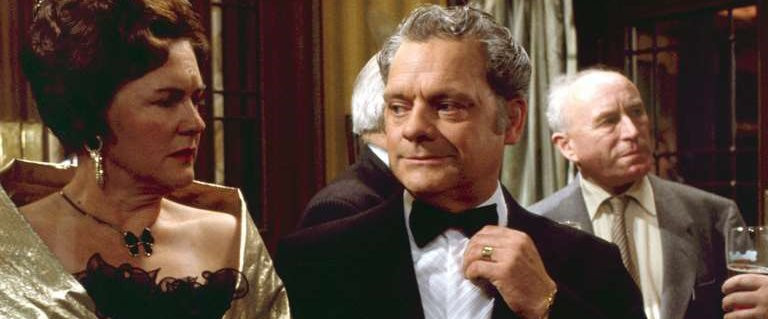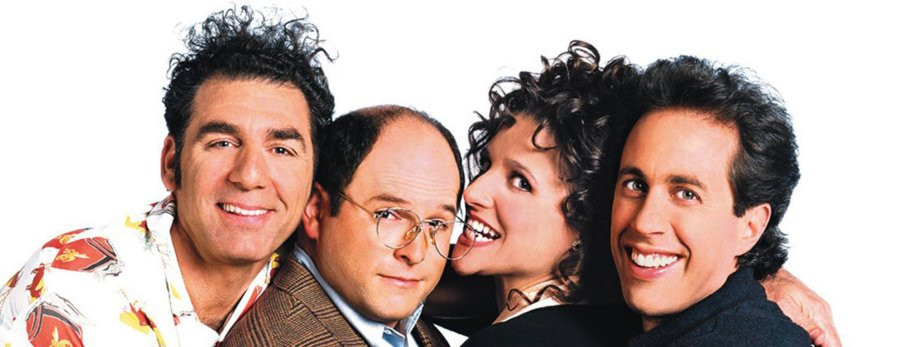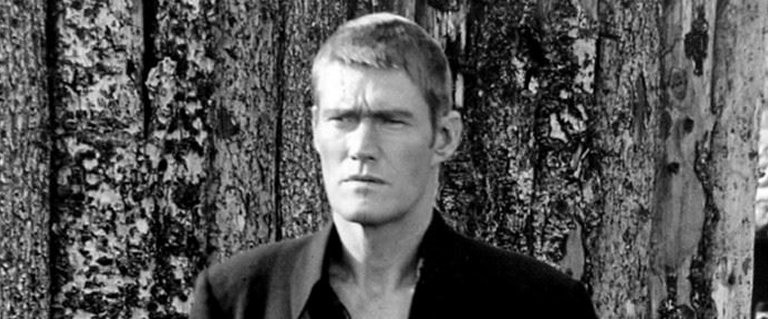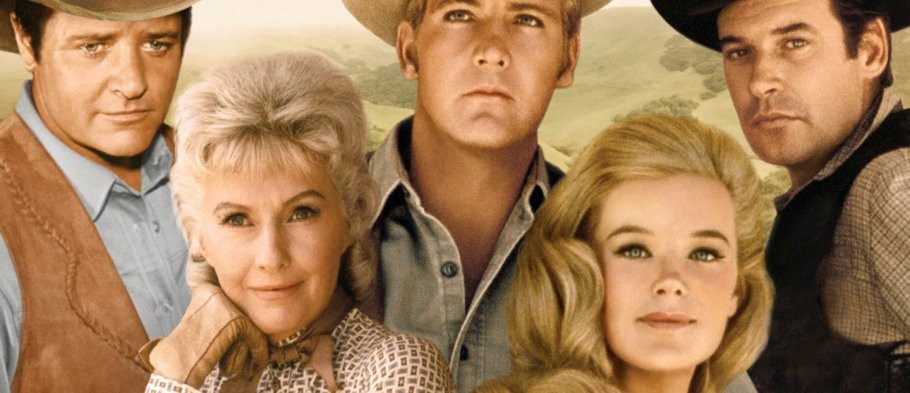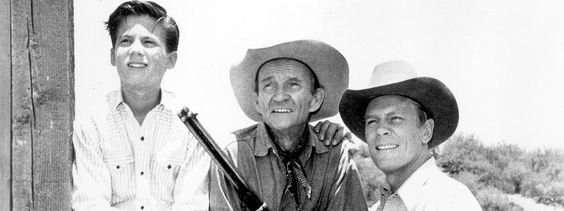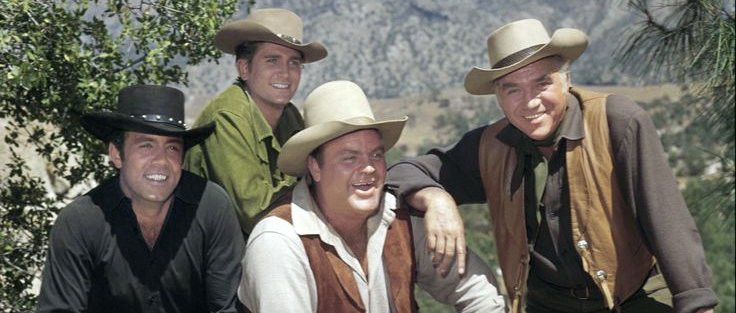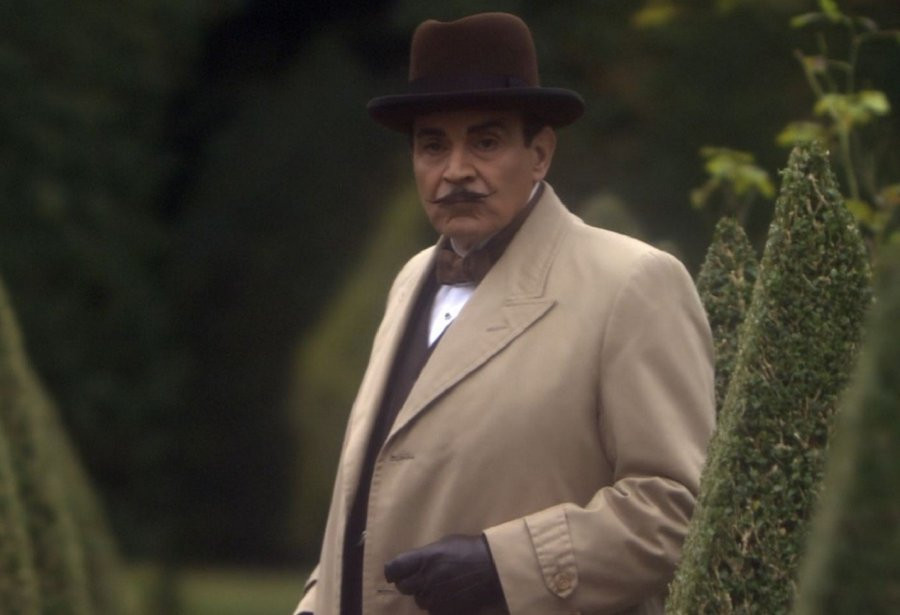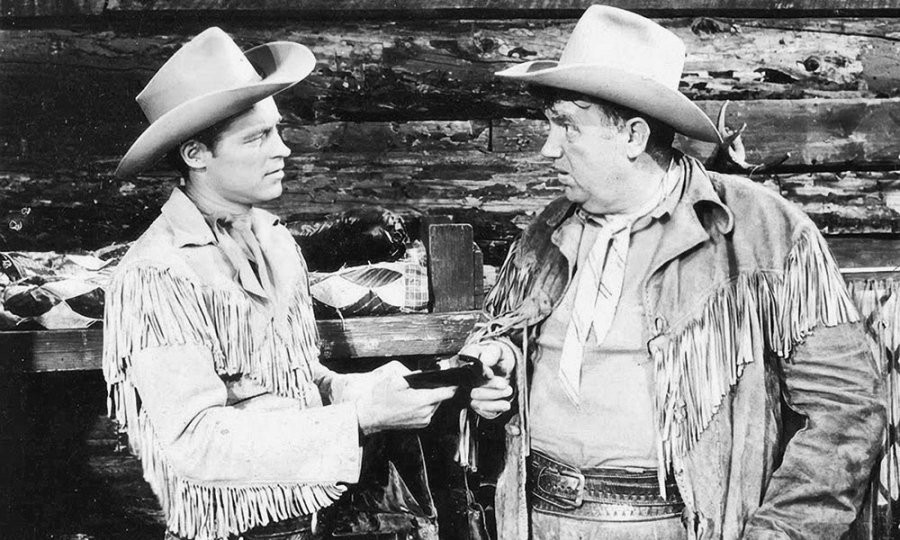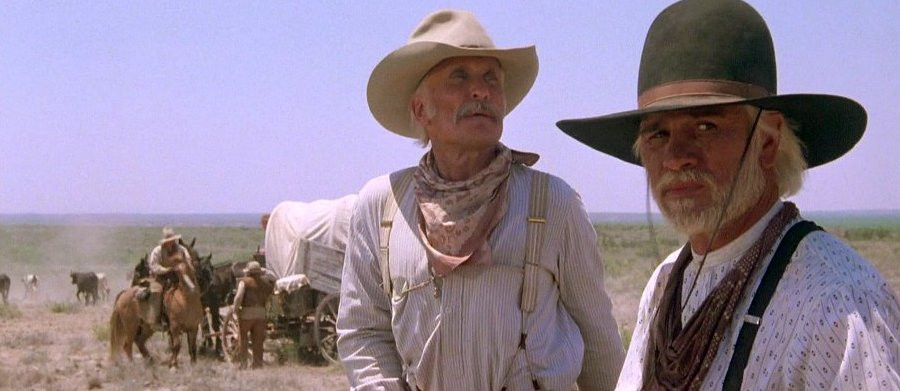
Lonesome Dove
1989 - United StatesWhile it may very well be true to say that Lonesome Dove is the greatest "miniseries" ever shown on television, it is perhaps also unfair to other "miniseries" to make the comparison - because Lonesome Dove is more than a "miniseries." It is basically a very long feature film that happened to be made for the small screen rather than the cinema.
Even by cinematic standards, it is epic, with a bunch of Oscar winners in the cast, sweeping landscapes shot by Stanley Kubrick's cameraman Douglas Milsome, and a soaring orchestral score from Basil Poledouris. Above all, it tells a Big Story, of how the Old West of American folklore came to its end. It belongs in the tradition of elegiac Westerns of the 1960s and 70s which included 'Monte Walsh' and 'Will Penny.' Indeed, it was intended to be one of them. It is based on a novel that was in turn based on a filmscript.
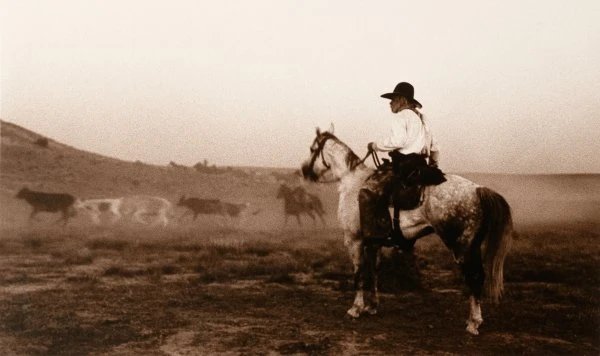
The script was for a project in which John
Wayne and James Stewart were slated to play the leads. This would have been a fascinating
film in its own right, but very different from what we got a couple of decades
later, and perhaps not quite the masterpiece that finally emerged. As it was, the
Duke passed on the deal and the whole thing went into "development Hell"
for years. The writer, Larry McMurtry, went on to do other things, but he knew
he had a good idea in that script and he never forgot it.
Eventually, despairing of ever getting it produced, McMurtry turned the neglected script into a novel. It was an instant American Classic and won the Pulitzer Prize. A television deal soon followed. There is a moral there somewhere for aspiring writers.
The greatest tribute to the quality of the novel - or perhaps to its origins as a filmscript - is that the teleplay makes very few changes in plot or dialogue. This is very unusual in the adaptation of a novel for the screen, big or small.
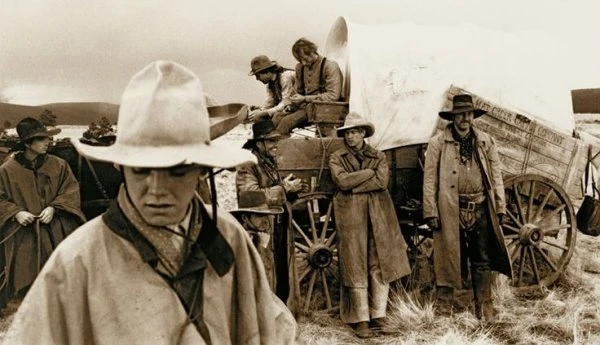
The central thread of the story is a cattle drive from Texas to Montana by a small crew led by two legendary Texas Rangers, who find themselves rather directionless when they see all the Indians and bandits they fought are dead or defeated. On their way North they meet old friends, old enemies, and various strangers. These characters interact to form a rich tapestry. Although the Old West was a very big place, it seems that, back in the days when there only a few people wandering around it, there was a very good chance of those few bumping into each other. At least there is in Lonesome Dove.
The series does not sugar coat the harshness and everyday brutality of the Old West, but it also reminds us that there was another side to it: there was camaraderie and humour and love and deep friendship. Far from the notion of the Clint Eastwood "man alone," there was a real sense of community, even if, as in the case of a cattle drive, it was a transient community, with people leaving and joining all the time.
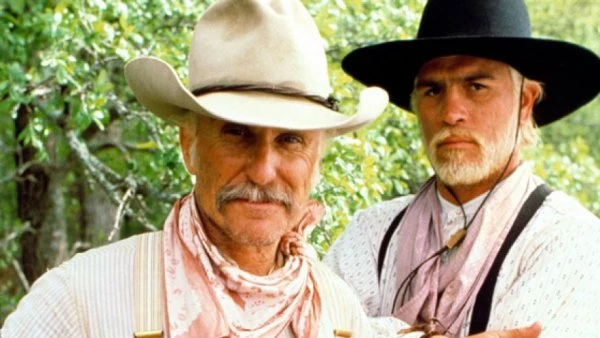
This is conveyed perfectly by a cast that is stellar in every sense. Robert Duvall and Tommy Lee Jones are the two retired Rangers, Robert Ulrich their scapegrace old friend, Danny Glover their scout, Anjelica Huston the girl Duvall left behind, Frederic Forrest a terrifying renegade, and Diane Lane a prostitute who has a thoroughly bad time. Also along for the ride are, among others, Chris Cooper, Glenne Headly, Rick Schroder, Barry Corbin, William Sanderson, and a couple of memorable pigs.
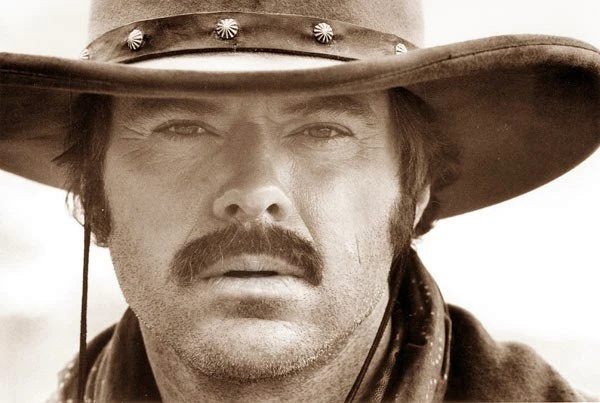
There are no weak links but it is perhaps inevitable that Duvall steals the honours as Captain Augustus McCrae. There is a strong case for saying that Duvall, rather than his showier near contemporaries Robert De Niro and Al Pacino, is the greatest screen actor of his generation. Indeed, he was quietly more than impressive than either in the first two 'Godfather' films and his absence from the third contributed to its failure. Add to that a curriculum vitae which includes 'True Grit,' 'Apocalypse Now,' 'The Great Santini,' 'Tender Mercies,' 'The Apostle,' and 'Open Range,' in which he plays a very different character from McCrae who nevertheless finds himself in a similar situation. One suspects the reference was deliberate.
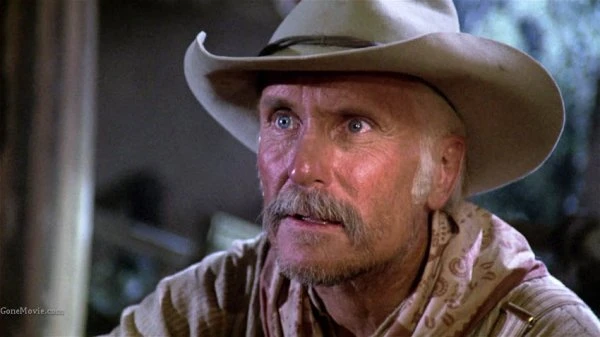
In Lonesome Dove, which some consider to be his best work, he abandons the subtle restraint that won him an Oscar in 'Tender Mercies' and basically enjoys himself. McCrae is a garrulous, truly loveable rogue, who seems something of a comic relief sidekick to Tommy Lee Jones' taciturn, more traditional hero, Captain Woodrow Coll. Then comes the twist. When gunplay erupts, McCrae reminds us he was a Captain in the Texas Rangers and it takes more than a genial personality to attain the status of a legend among them.
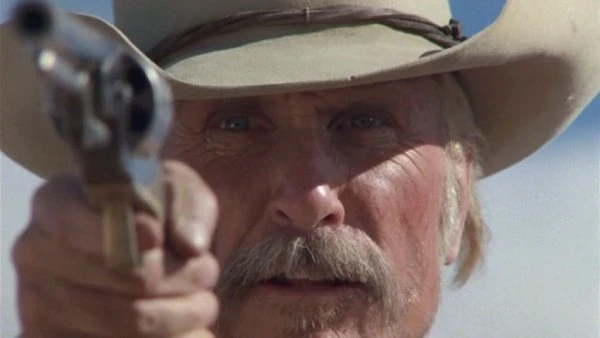
His capacity for casual violence is as astonishing as it is unfussy. There are no staged duels with close ups of eyes and tongues licking dry lips before the draw while the music builds to a crescendo. McCrae is just very experienced at killing people very efficiently. He makes incredible fighting skills look entirely credible.
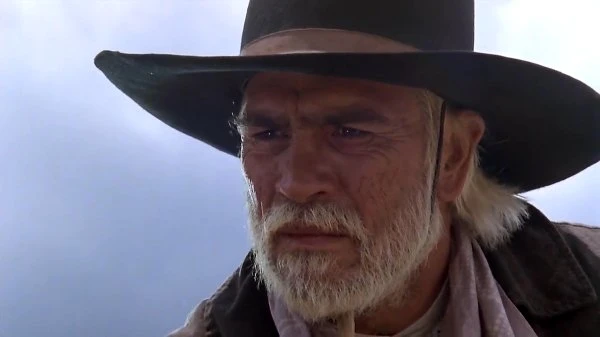
A lot of money was spent on Lonesome Dove, not least on the cast, and it shows. At the time, it was a big gamble, because it was generally held that the Western was dead. The last attempt to revive it, the movie 'Silverado,' had been a modest success but not enough to revive the genre. Television was more interested in slick, contemporary drama with a modern sensibility.
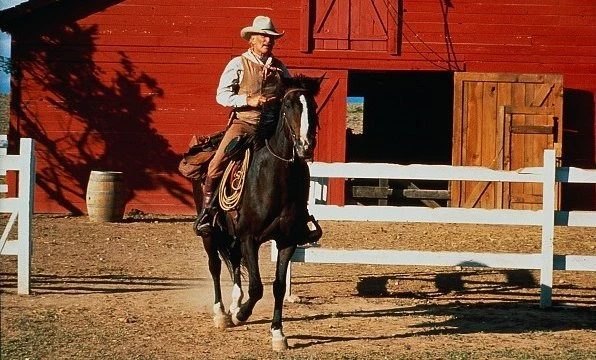
So the producers of Lonesome Dovegambled big - investing in quality in every department - and they won big. Ratings were huge and it was showered with awards. The next year Clint Eastwood made 'Unforgiven,' which seems to have more in common with Lonesome Dovethan with some of his own earlier "man alone" work, and the Western was definitely back.
About the reviewer: John Winterson Richards
John Winterson Richards has a law degree from the University of Bristol, an MBA from the University of Wales Institute of Science and Technology (UWIST), almost 30 years' experience as a management consultant, and a fascination with organisational structures. An experienced freelance writer as well as a consultant, John has been commissioned and paid to write over 500 articles in print and online. He was a regular guest on the Mind Your Own Business podcasts and a major contributor to that website's blog.
John has also written The Xenophobe's Guide to
the Welsh: A guide to understanding the Welsh that explores their nature and
outlook with benevolence and humour, and How To Build Your Own Pyramid: A
Practical Guide to Organisational Structures for Managers. Both are available
from Amazon (see above).
Published on December 16th, 2019. Written by John Winterson Richards for Television Heaven.


